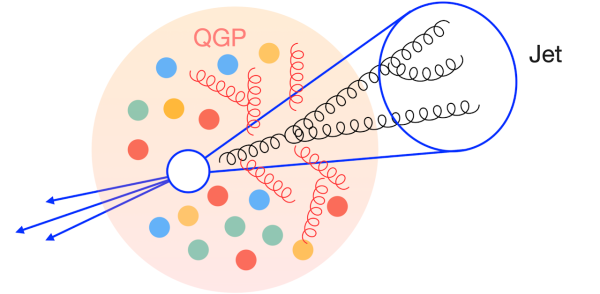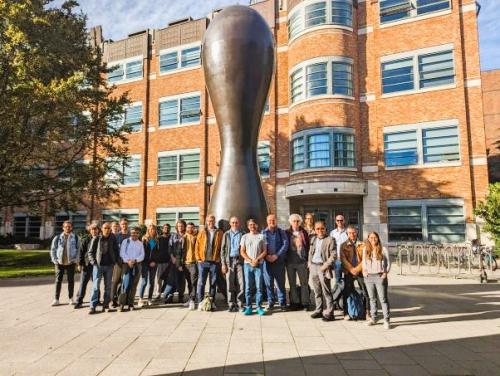Probing QCD at High Energy and Density with Jets

Note to applicants: This an in-person workshop. There will be no virtual component.
Disclaimer: Please be aware that, due to ongoing concerns regarding the COVID-19 pandemic, this workshop may be changed from in-person to hybrid, or to online-only if necessary.
In ultra-relativistic heavy ion collisions nuclear matter is heated to about five trillion Kelvin, the temperature of the universe right after the big bang. In this regime, matter undergoes a phase transition into a plasma of quasi-free quarks and gluons, forming the Quark-Gluon Plasma (QGP). The concept of jet quenching was first proposed in the 80s as a signal of the QGP, and was later observed at the Relativistic Heavy Ion Collider (RHIC). This led to dedicated research programs to investigate quantum chromodynamic (QCD) matter at high energies and densities with jets at RHIC and the Large Hadron Collider (LHC).
Jets, characterized as collimated sprays of energetic particles, were predicted by QCD to form in high energy collisions. Over the last decade, the study of jet physics in heavy-ion collisions has been a very active field of research, driven by both theoretical progress and the unprecedented experimental capabilities of the RHIC and LHC accelerators and detectors. This workshop will bring together theorists and experimentalists to discuss recent theoretical tools, new measurements at the LHC and RHIC, and explore the impact of the sPHENIX experiment which started taking data in 2023. In addition, the workshop will focus on the closely related scientific program at the Electron-Ion Collider (EIC).

